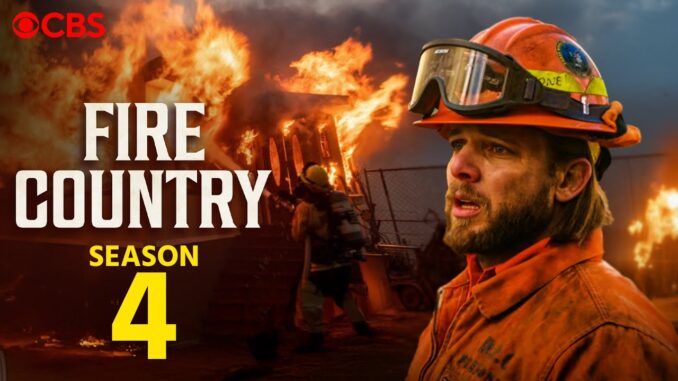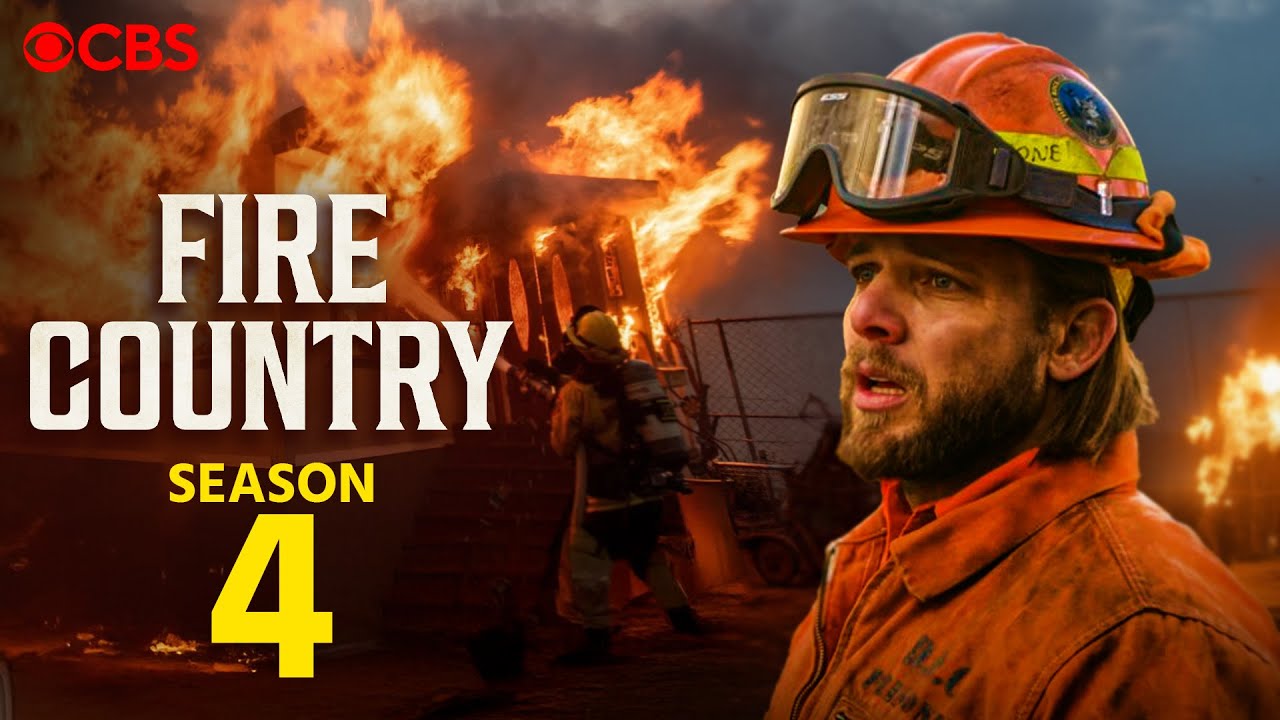
The Echoes of Schedules: When Fire Country’s Delay Fuels Speculation and Spinoff Dreams
The flickering orange glow of a wildfire, the roar of helicopter blades slicing through the air, and the taut faces of first responders wrestling with flames – these are the visceral images that define “Fire Country,” CBS’s action-packed drama. Yet, behind the captivating spectacle lies a complex web of production schedules, network priorities, and the ever-present gamble of launching a successful spin-off. The recent announcement of a delayed fourth season for “Fire Country,” coinciding with a significant push for the “Sheriff” spin-off featuring Morena Baccarin, has ignited a firestorm of speculation, leaving fans grappling with the unsettling reality of “Schedule Shock.”
“Schedule Shock” is more than just a postponed premiere date. It’s a ripple effect that disturbs the carefully constructed ecosystem of a television show. It disrupts the momentum, breeds uncertainty among fans, and forces viewers to reconsider their investment in the narrative. In the case of “Fire Country,” the delay feels particularly significant, as it’s inextricably linked to the ambitious launch of “Sheriff.” The implication, subtle yet undeniable, is that resources, both creative and financial, are being diverted to ensure the success of the new series. This reallocation can feel like a betrayal to loyal viewers who have diligently followed Bode Donovan’s journey of redemption.
The success of a television series hinges on several factors, but consistency is paramount. Viewers crave the familiar comfort of weekly episodes, the rhythm of character development, and the anticipation of storylines reaching their climax. When that rhythm is disrupted, the connection weakens. The delay of “Fire Country” Season 4 risks diluting the audience’s enthusiasm. The longer the wait, the greater the chance of viewers losing interest, finding alternative entertainment, or simply forgetting the compelling narrative that drew them in initially.
The “Sheriff” spin-off, undoubtedly, represents a strategic gamble for CBS. Expanding a successful franchise can be a lucrative venture, but it also carries significant risk. A poorly executed spin-off can tarnish the reputation of the original show, alienate existing fans, and ultimately lead to the downfall of both projects. The pressure on “Sheriff” is immense, and the delay of “Fire Country” underscores the network’s commitment to its success. But this commitment comes at a cost.
The delay throws into question the future trajectory of “Fire Country” itself. Will the original show suffer from a perceived lack of attention? Will storylines be truncated or abandoned to accommodate the spin-off? These are legitimate concerns that resonate with viewers who feel that their favorite characters and narratives are being sacrificed at the altar of franchise expansion. The “Schedule Shock” isn’t just about a postponed premiere date; it’s about the erosion of trust and the fear that the show they love is losing its way.
Furthermore, the delay can have ramifications for the cast and crew of “Fire Country.” Production schedules are often meticulously planned, and a significant delay can impact their availability, potentially leading to casting changes or creative conflicts. The instability can breed uncertainty and resentment behind the scenes, ultimately affecting the quality of the final product.
In conclusion, the “Schedule Shock” surrounding “Fire Country” Season 4 is a stark reminder of the complex dynamics that govern the television industry. It’s a story of ambition, strategic maneuvering, and the delicate balance between maintaining existing success and pursuing new opportunities. While the promise of the “Sheriff” spin-off may be alluring, the delayed return of “Fire Country” leaves a lingering unease among its fanbase. The future of the franchise hangs in the balance, a testament to the profound impact that even a seemingly minor scheduling change can have on the narrative landscape and the devoted viewers who call it home. The echoes of this “Schedule Shock” will reverberate through the series, shaping its future and reminding us that in the world of television, even the hottest fires can be extinguished by the cold winds of corporate strategy.
